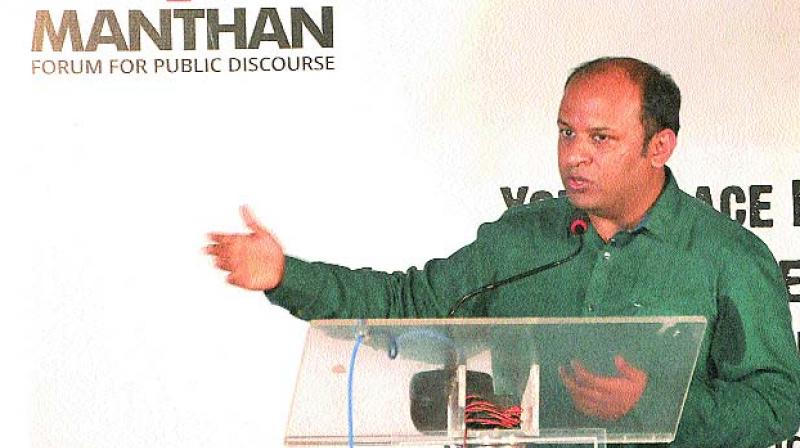Fake news often weaponised in communal riots: Pratik Sinha
Use Google reverse image search to fact check images.

Hyderabad: Rumours are being localised and this is being done in a organised fashion that they are translated into different languages and the names of places are being changed based on the audience, to spread fake news.
Mr Pratik Sinha, founder of alt-news, a fact-checking website, said, “Not everybody acts on fake news but the people who are acting on it lack awareness as they don't have criticality. If you have political or religious bias, it is easy to mislead you by boosting the bias.”
Mr Sinha was speaking on the topic, ‘Fake News Epidemic’ at an event organised by Manthan on Saturday.
Citing the example of how a video clip from a Bhojpuri movie, Aurat Kilona Nahi, was circulated as a Hindu woman being molested during the Basirhat riots in West Bengal, Mr Sinha said, “Misinformation has often been weaponised during communal riots.”
Due to the increased Internet consumption over last two years, the number of rumours have increased eventually leading to lynchings across the country.
“For a majority of population, the WhatsApp inbox is their window to the world, especially with the app coming pre-installed on '3,000-'4,000 phones. Reactions to fake news is more among rural population as they are first-time users of the Internet,” he said.
The WhatsApp inbox is being treated as the newspaper and the multiplicity of message is impacting the trustability. Consequently, the more people send the rumour, more is the trust in the message, Mr Sinha said.
“Rumours often have sense of loss, so people react to them. When relatives or friends keep sending the same message, there is a slow build-up of fear and eventually there will be a trigger point,” he added.
“People who are attacked are often nomadic tribes. No votes are to be gained, so nobody spoke out. Lynchings could have been prevented if the government had anticipated them,” Mr Sinha said.
He pointed out that instead of acting on misinformation by one party by countering it, the other parties were creating more misinformation. Furthermore it has become challenging to get responses from officials when they are asked for clarifications. “Facts are not reaching the people as governments are not acting proactively,” he said.
Fact-checking at the individual level can reduce 50 to 60 per cent of the rumours, he said.
H7

